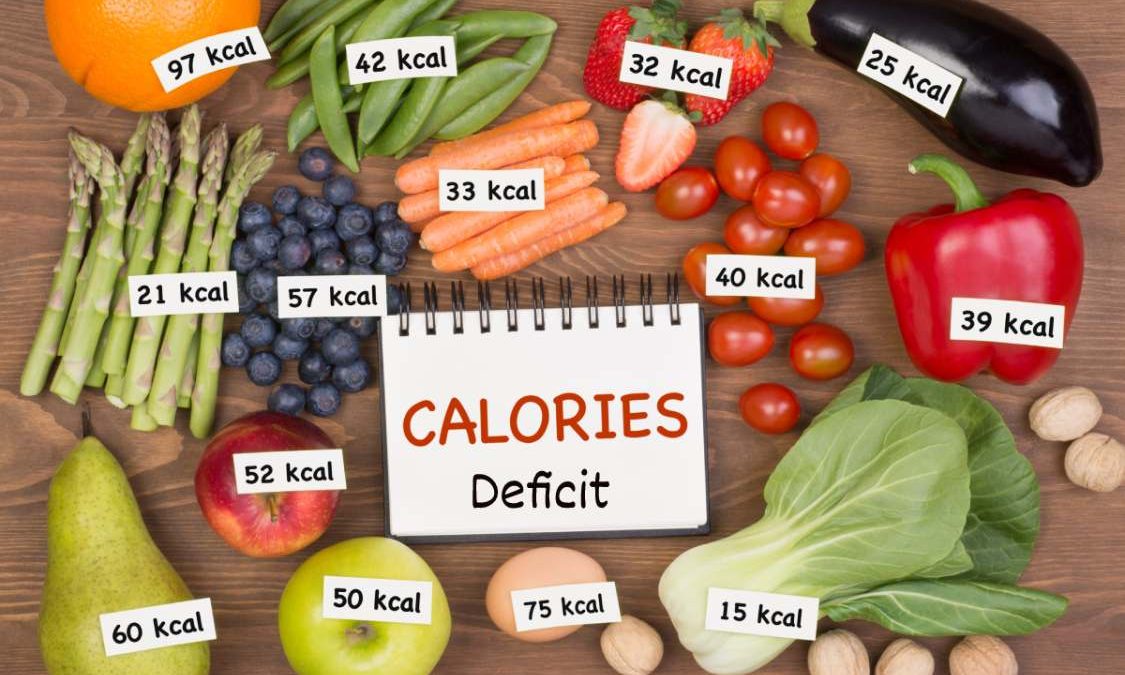Table of Contents
Introduction
Calorie Deficit is a system in which the amount of prices is consumed less than those that the body burns daily, and the prices are the energy units that the body derives from food, and the body’s daily need for them varies depending on many factors, such as:
- Lifetime.
- Height and Weight.
- Body Composition.
- Degree of physical activity.
When the body needs to burn more calories than it has received from food, it will fill the deficiency by burning the fat stored in the body, turning it into energy, and the process of converting fat to energy may lead to gradual weight loss.
A state of calorie deficit in the body can be created either by raising levels of physical activity, by eating lower prices, or by combining both of these two.
Calories: Where do you go Daily?
To design your calorie deficit system, you’ll first need to know where and how calories are burned daily or so-called calorie expenditure. Here’s a list of daily calorie banks:
Resting Energy Spend-REE
The body’s internal operations during rest are a calorie drain, as the body needs the energy to complete processes such as:
Respiration.
Blood flow in the body.
Energy Generated During Movement
A person’s daily activities are a calorie drain, as the body draws the energy needed to complete these activities from calories. These activities are classified into two categories as follows:
- Non-sports activities, such as daily homework.
- Sports activities, such as running.
The body needs the energy to digest food, so digestion, absorption, and metabolism are calorie drains.
Calorie Deficit System: Is it Enough to Lose Weight?
The answer depends on the nature of the system. Suppose a person is trying to achieve a calorie deficit by simply reducing food intake while following a static lifestyle. In that case, the calorie deficit system may not be enough to lose weight.

Food prices are not the only factor affecting weight, as physical activity also plays an essential role in weight loss, so anyone who adopts a static lifestyle. And wants to follow the calorie deficit system is usually recommended to start exercising 30 minutes of physical activity per day while eating fewer calories.
Calorie Deficit: Do You Need it?
You will only need to create a case of calorie deficits if:
Need for excess weight loss.
Having a particular health condition calls for creating a state of calorie deficit, depending on the doctor’s recommendations.
How can I Design a Calorie Deficit System?
The appropriate calorie deficit system for person under the supervision of a doctor can be created by:
calculate the number of calories your body needs daily to maintain its current weight without increasing or decreasing.
Calculating the number of calories that can we can reduce can help us lose weight slowly and healthily. These can be small at first, such as not exceeding 200-300 calories, to be lifted afterwards under the supervision of a doctor.
Essential Recommendations for Designing a Healthy Price Deficit System
To introduce the body to a health price deficit, combining changes in diet with exercise is preferable. as it comes:
Changes in the Diet
- Avoid foods and beverages rich in trans fats, and replace all sugar-rich drinks with water.
- Eat healthy foods, such as fat-free protein sources, vegetables, fresh fruits, and whole grains.
- Eat low-fat types of milk and dairy products.
- Use only healthy oils, such as olive oil.
Exercise
The recommendation is to exercise 30-45 minutes at an almost daily pace of training or various activities, which do not necessarily have to be done in a single session but can be distributed in the form of separate intervals throughout the day;
These are some of the activities that can be done daily:
- Walking.
- Climb the stairs instead of using the elevator.
- Riding a bicycle.
But if you want to exercise hard and hard, consult your doctor first, especially if you are obese.
Will it Leave you Hungry
Not necessarily. Although you may reduce the value of calories entering your body every day, you can achieve calorie deficits by replacing some high-calorie foods with healthy, low-calorie foods.
Healthy, saturated and low-calorie options are numerous. Eating more water and fibre-rich foods within a diet will boost your sense of fullness. So you may be able to follow this system without feeling hungry.
Damage to the Calorie Deficit System
Following this system can moderately help you lose weight, but in return, excessive calorie deficits can cause many complications, such as:
- Slow down the frequency of metabolism.
- Stimulating gallstones.
- Decreasing brain energy supply.
- Nutrient deficiency, which may disturb bone mass.
Therefore, it is preferable to consult your doctor before following this system and cause a calorie deficit sufficient to achieve a weight loss of not more than 1 kg per week.

